
It is commendable that, despite being a developing country, South Africa records relatively high levels of school enrolment and attendance. The University of Cape Town’s Children’s Institute reports that 11.3 million (98%) of South African children aged seven to 17 attended some form of educational facility in 2018.
“However, there is a dark side to these statistics, notably the less-than-ideal treatment of schoolchildren and children at large. There exists blatant violation of children’s rights,” says Professor Thenjiwe Meyiwa, Vice-Principal: Research, Postgraduate Studies, Innovation and Commercialisation.
“It is from the violation of children’s rights that, in recent years, Amnesty International has intensified its call for South African schools to sign up as Human Rights Friendly Schools,” she says. “Amnesty International implores schools that sign up for this status to implement the Human Rights Friendly Schools approach, with the involvement of the whole community and often with support from Amnesty International.”
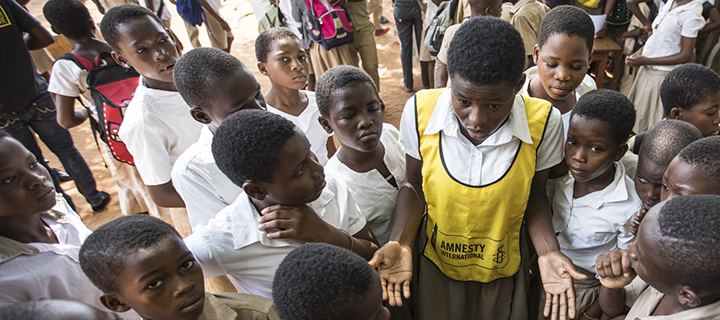
Image: Amnesty International
These schools have set aims, among which are to:
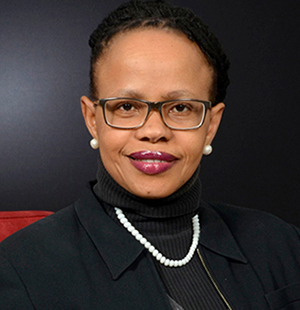
Professor Thenjiwe Meyiwa
Meyiwa hosted the Fifth Asikhulume Roundtable series discussion on 28 March 2022 with the theme, “Promoting school children’s rights and identities: opportunities and challenges for social cohesion”, highlighting concerted efforts to protect children’s rights.
Involvement of all sectors of society needed
Echoing Amnesty International principles, one of the panellists, Dr Antoinette Basson, Head of the Youth Research Unit at Unisa’s Bureau of Market Research, emphasised the importance of upholding children’s and young people’s rights. She submitted that “all sectors of society need to reflect and introspect on what is being done and what is not being done to protect children’s rights”.
As many as 50% of children interviewed by researchers in her unit had confirmed they had been exposed to inappropriate sexual images but only a small number had received support, she said. More than a third of children who had been bullied themselves were now bullying others. Substance abuse, particularly the abuse of alcohol, was widespread, with high stress levels among school-going children being a contributing factor.
“It is clear that children’s rights to protection are being neglected,” said Basson, adding that, although the picture was bleak, there were several opportunities to strengthen children’s rights. “We can work together and strengthen the system, promote the participation of children – the child’s voice – and facilitate children’s rights education in South Africa. We need more research on issues impacting children and to apply the findings, and we should also increase multisectoral support for children,” argued Basson.

Panellists from left: Dr Antoinette Basson, Prof. Oupa Makola and Zulaikha Lali Patel
Holistic, inclusive support for children
Her two fellow roundtable panellists, Professor Oupa Makola of the Central University of Technology (CUT) and Zulaikha Lali Patel, an anti-racism and social justice activist, also highlighted the importance of support for children, including a holistic, inclusive approach to promoting and protecting their rights, as well as managing positive discipline.
While more research is still needed on the state of “positive discipline” at schools across South Africa, indications are that the concept is often misunderstood and misapplied. Positive discipline, which is discipline without the use of fear or force, and which respects the rights and dignity of children, was one of the main discussion points at this Asikhulume Roundtable.
The issue of positive discipline was unambiguously raised by Makola, a counselling and child psychologist and Welkom Campus Director of CUT. Outlining the findings of a CUT study at six Mpumalanga schools, he said there was a need for educators, school governing bodies, parents and learners themselves to be better informed about positive discipline.
“Our study suggests positive discipline is not effectively applied at South African schools,” Makola said, noting the high prevalence of truancy, substance abuse, bullying and other anti-social behaviour at schools.
He attributed the apparent failure of positive discipline at schools to low or inconsistent levels of knowledge about it, as well as problems with its implementation. Cause for concern, said Makola, was that some school principals in the CUT study had not been able to define the concept of positive discipline.
Asked what problems schools encountered in implementing positive discipline, some participants in the study said there was too much emphasis on learners’ rights and too little on their corresponding responsibilities, or on the rights of educators. Others referred to the “cut-and-paste approach” used, based on imported Western ideas but without these being customised to local contexts and African principles.
What was needed, said Makola, was a socially cohesive approach towards positive discipline, underpinned by multi-stakeholder engagement that includes parents and learners through vibrant learner councils.
The third member of the panel embodies the ideal of youth activism and participation in children’s rights. Patel, was only 13 years old when she coordinated protests against the anti-girl and anti-black hair regulations at the Pretoria High School for Girls.
Arguably the most important factor in protecting the rights of children is to create an inclusive schools culture that is anti-racist, anti-queerphobia, anti-xenophobic and anti-gender discrimination, she said.
* Submitted by the Research, Postgraduate Studies, Innovation and Commercialisation Portfolio
Publish date: 2022-04-19 00:00:00.0
 National leader in mathematics education aims to improve outcomes
National leader in mathematics education aims to improve outcomes
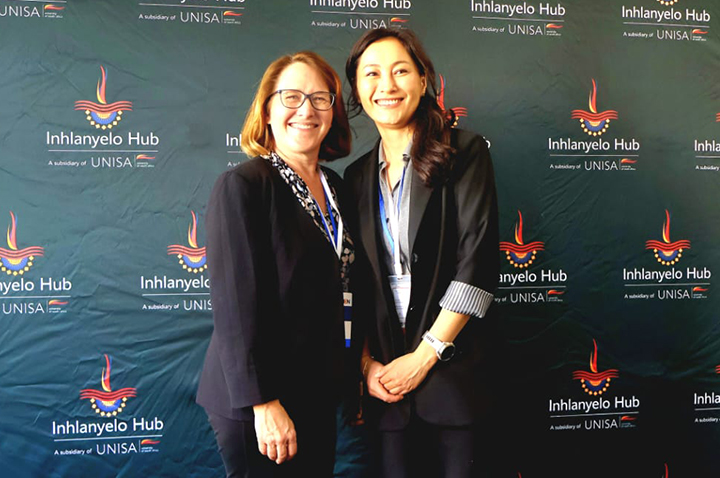 Unisa roundtable focuses on empowering SA women to lead in innovation
Unisa roundtable focuses on empowering SA women to lead in innovation
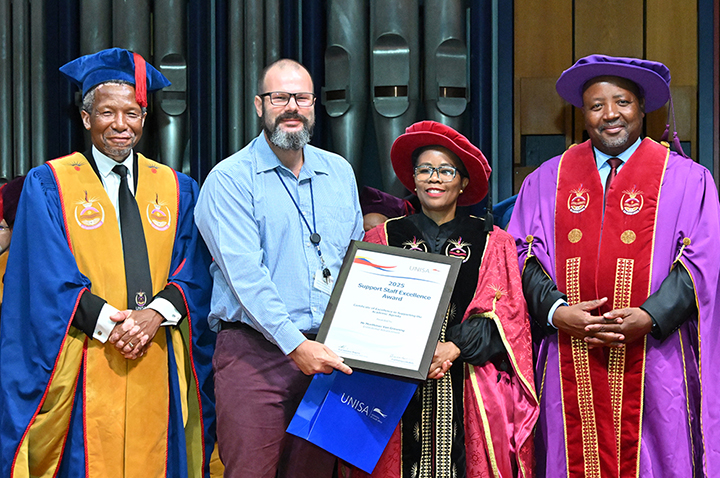 Unisan recognised for web excellence
Unisan recognised for web excellence
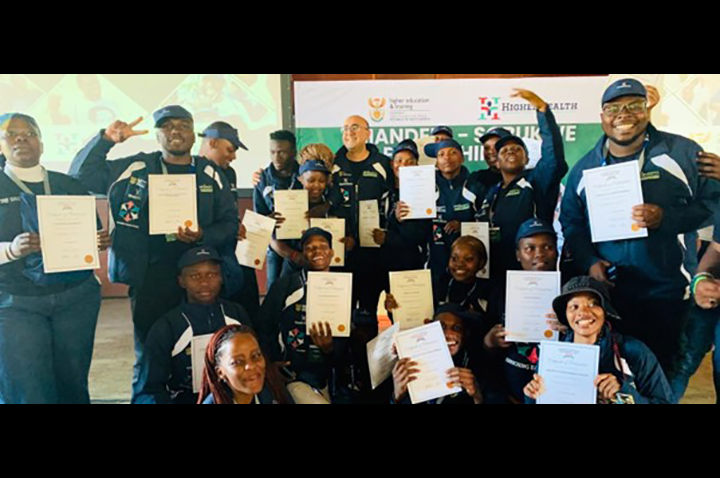 Office of the Dean of Students participates in leadership camp
Office of the Dean of Students participates in leadership camp
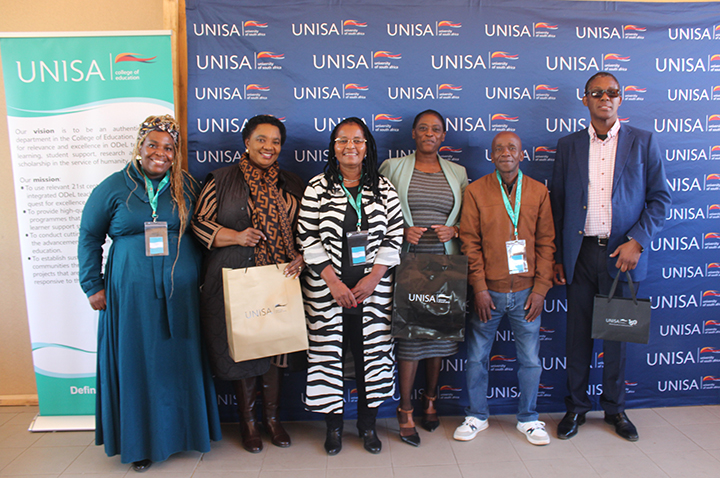 Unisa project fosters digital and pedagogical innovation in Limpopo schools
Unisa project fosters digital and pedagogical innovation in Limpopo schools